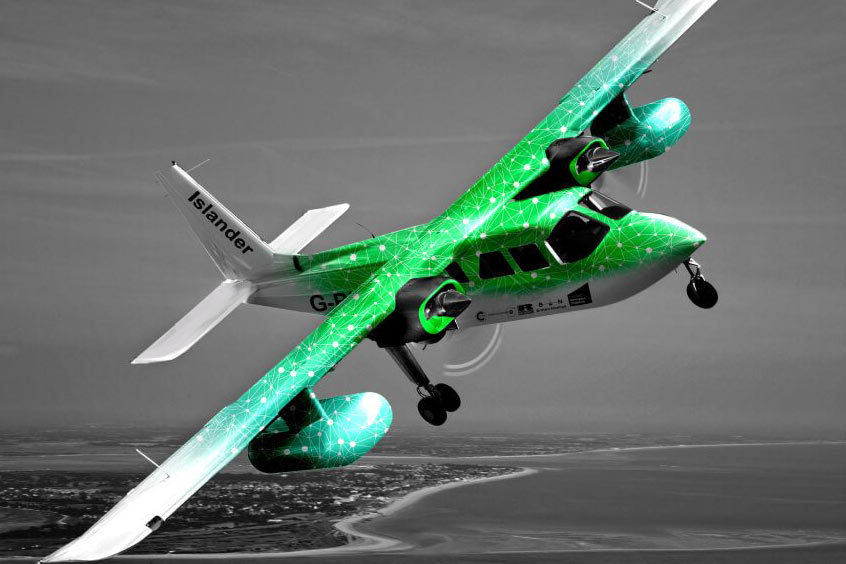Why visit ACE ’25?

Bremen, Germany-based Evia Aero has signed a letter of intent with Cranfield Aerospace Solutions (CAeS) for 10 hydrogen fuel cell-propelled conversion kits for Islander aircraft as part of its strategy to bring hydrogen air services to northern Europe.
CAeS is developing a conversion to a Britten Norman Islander nine-seat aircraft that will transform its propulsion system from conventional fossil fuel to that of gaseous hydrogen via a fuel cell and electric motor. The solution will be emissions free and the resulting supplemental type certificate (STC) is planned for 2025.
Evia Aero founder and CEO Florian Kruse says: “We are very happy to enter this arrangement with Cranfield Aerospace Solutions for the 10 aircraft. These aircraft will support Evia Aero’s plans to develop sustainable aviation around the northern coasts of Germany, the Netherlands and Denmark, and will contribute to the environmental concerns and goals of the region.
“By working closely with Cranfield Aerospace Solutions and its quickly evolving hydrogen aircraft solution, combined with Evia Aero’s commercial knowledge of the markets in Europe, Evia Aero is excited about the future and the application of this aircraft to fulfil the emerging need.”
The two companies entered into a strategic collaboration in June, to focus on both the aircraft operations and hydrogen infrastructure for a north European zero emissions sub-regional air service. CAeS technology will help redefine regional connectivity, while Evia's planned route networks align with the hydrogen Islander aircraft and its expected performance.
“CAeS is delighted to be signing this LoI with Evia Aero," adds CEO Paul Hutton. “In a world desperate to reduce its carbon emissions and with the reduced operational costs promised by this new technology, zero emissions flight on small aircraft such as the Islander offers another solution for sub-regional travel, one that could be part of an inter-connected transportation system; a complementary service to existing ground networks, serving those routes that are either poorly served by road or rail or are highly congested.”